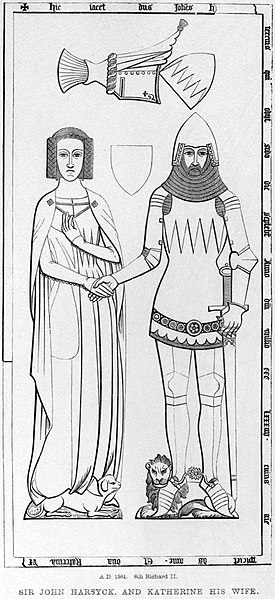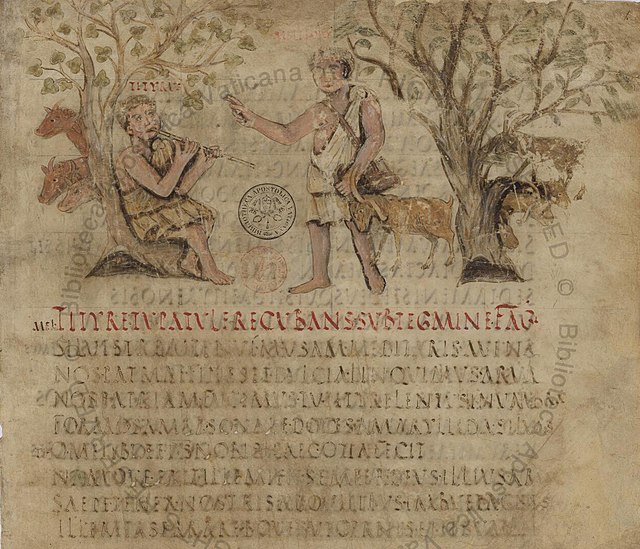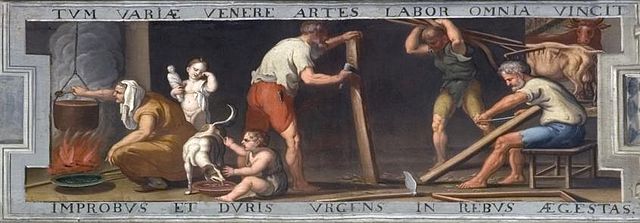An epitaph is a short text honoring a deceased person. Strictly speaking, it refers to text that is inscribed on a tombstone or plaque, but it may also be used in a figurative sense. Some epitaphs are specified by the person themselves before their death, while others are chosen by those responsible for the burial. An epitaph may be written in prose or in poem verse.
Epitaph on the base of the Haymarket Martyrs' Monument, Waldheim Cemetery, Forest Park, Illinois
Ledger stone with epitaph in ledger lines of Sir John Harsyck (d. 1384), South Acre Church, Norfolk
Grave of Selena at Seaside Memorial Park in Corpus Christi, Texas citing Isaiah 25:8 writings
Grave of W. B. Yeats; Drumecliff, Co. Sligo
Publius Vergilius Maro, usually called Virgil or Vergil in English, was an ancient Roman poet of the Augustan period. He composed three of the most famous poems in Latin literature: the Eclogues, the Georgics, and the epic Aeneid. A number of minor poems, collected in the Appendix Vergiliana, were attributed to him in ancient times, but modern scholars consider his authorship of these poems to be dubious.
Modern bust of Virgil at the entrance to his crypt in Naples
Page from the beginning of the Eclogues in the 5th-century Vergilius Romanus
Horace, Virgil and Varius at the house of Maecenas, by Charles Jalabert.
Late 17th-century illustration of a passage from the Georgics, by Jerzy Siemiginowski-Eleuter.








